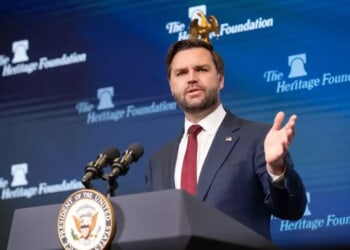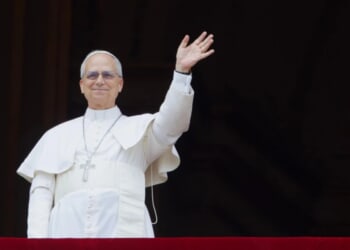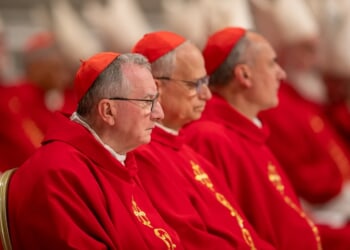
Oklahoma governor Kevin Stitt has led the way in the fight for religious liberty. In March, Stitt issued an executive order that calls on the state government to follow the U.S. Constitution. Executive Order 2025-08 instructs Oklahoma agencies to review existing policies, purge unconstitutional exclusions, and make clear that religious and secular organizations alike may access public funds, licenses, and programs on equal terms.
As the Supreme Court has repeatedly affirmed, states must treat faith-based and secular organizations equally when enlisting private groups to deliver public services. They may not disqualify religious organizations or require them to secularize as a condition of participation. Yet for too long, states—and the federal government—have ignored this nondiscrimination mandate, unconstitutionally excluding religious organizations from public programs, contracts, and funding opportunities. These exclusions have not been based on the nature or quality of the services provided, but solely on the religious identity of the provider.
Finally, a reason to check your email.
Sign up for our free newsletter today.
Governor Stitt’s directive cuts through that fog. This is not special treatment, but constitutional fidelity.
Consider what the order means in practice: religious schools can now apply for education grants; faith-based recovery centers can take part in addiction programs; houses of worship can help administer after-school services without being forced to silence their beliefs. That’s not “theocracy,” as some activist groups allege—it’s basic fairness.
The strength of Stitt’s executive order lies in its legal clarity and political resolve. It instructs every state agency to “[c]onduct a comprehensive review of their regulations . . . to identify any provisions, policies, or practices that exclude religious entities or otherwise burden the free exercise of religion.” It goes further still, directing the agencies not to enforce any such offending laws. Stitt is clear that “correcting the errant interpretation of state law and regulation is not only a matter of constitutional law but also a moral imperative,” and he urges the legislature to act to repeal all unconstitutional religious discrimination within Oklahoma law.
This is the bare minimum required by the First Amendment, which—despite popular misconceptions—does not mandate a strict “separation of church and state.” Rather, it bars the federal government from establishing a religion and guarantees that all religions, religious individuals, and religious organizations enjoy the same rights and opportunities as their secular counterparts.
But today, even reaffirming constitutional boundaries takes courage. The order arrives as the U.S. Supreme Court failed to overrule Oklahoma’s highest court in Oklahoma Statewide Charter School Board v. Drummond, which examined whether religious organizations can operate publicly funded charter schools.
At the center of the case is St. Isidore of Seville Catholic Virtual School, approved by the Oklahoma charter board but opposed by the state’s attorney general. With a deadlocked decision in Drummond and thus no binding precedent, the First Amendment’s promise of equal treatment for believers remains unfulfilled. Stitt, however, has ensured that Oklahoma will not participate in such discrimination.
His order sets a model for other states, many of which continue to discriminate against faith-based organizations. As a website recently launched by Notre Dame Law School, the Orthodox Union’s Teach Coalition, and the Epic Coalition reveals, such discrimination pervades state education, social-service, and health-care programs. States have a simple remedy to address these practices: follow Stitt’s lead and put an end to them.
Whether rooted in interpretive error or religious bias, lawmakers across the U.S. have imposed a range of restrictions on religious groups. These have taken many forms: denying licenses to faith-based foster-care providers, excluding religious schools from publicly funded programs, and telling religious nonprofits that government partnerships require them to sideline their beliefs and practices.
The Supreme Court has repeatedly invalidated such exclusionary regimes. In Trinity Lutheran Church v. Comer (2017), the Court held that a church-run preschool could not be barred from a public playground-resurfacing program just because the school was religious. In Espinoza v. Montana Department of Revenue (2020), it held that the state could not exclude religious schools from scholarship programs. And in Carson v. Makin (2022), the Court reaffirmed that the state of Maine could not disqualify religious organizations from participating in a public benefit.
In our recent Manhattan Institute report, we document how, despite these clear rulings, many state programs continue to exclude religious organizations from participating in public benefits. These unconstitutional exclusions persist across various sectors, including education, social services, and historic preservation. We have also documented how many publicly funded pre-K programs still bar religious providers or require them to secularize their curricula to receive funding, directly contravening the Court’s decisions.
Other states should follow Oklahoma’s lead. Similar executive orders should be no-brainers for Governors Glenn Youngkin of Virginia, Kay Ivey of Alabama, and Brian Kemp of Georgia, all of whose state laws variously exclude religious organizations from programs ranging from school-bus-fuel tax rebates to state-employee charitable campaigns. Governors Josh Shapiro of Pennsylvania, Kathy Hochul of New York, and Jared Polis of Colorado should also bring their states into constitutional compliance by clarifying that religious entities are eligible to participate in public programs such as pre-K services.
This is basic constitutional law. But ensuring that states live up to their obligations requires political will. Enforcing the First Amendment doesn’t begin in the courts—it begins with governors willing to uphold their oaths.
Photo by Brandon Bell/Getty Images
City Journal is a publication of the Manhattan Institute for Policy Research (MI), a leading free-market think tank. Are you interested in supporting the magazine? As a 501(c)(3) nonprofit, donations in support of MI and City Journal are fully tax-deductible as provided by law (EIN #13-2912529).
Source link


















